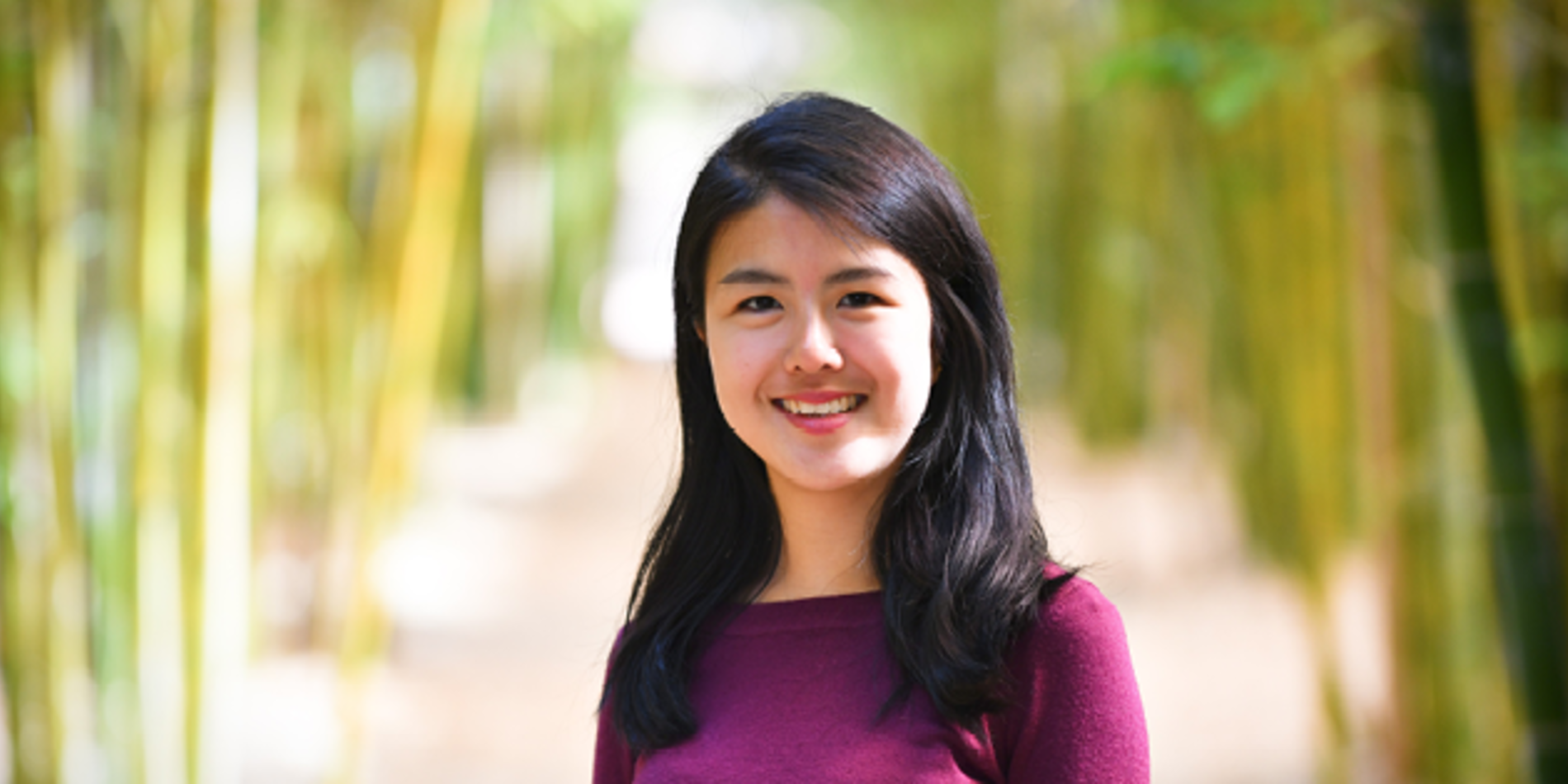Pam Cai | Student Spotlight

Pam Cai
PhD Candidate
Chemical Engineering
Spakowitz Lab and Heilshorn Lab
"When I first applied to the Stanford ChemE PhD program, I wasn’t sure that I wanted to do a PhD. I actually ended up deferring my enrollment and working in finance. But a year into being an investment banker, I missed feeling like I was making a difference in the world through my understanding of science. I realized that ultimately the impact I wanted to have on the world was something I could only achieve through scientific research, so I returned to academia to get my PhD.
After arriving at Stanford, I began rotating in Prof. Spakowitz’s lab, which was both an exciting and daunting experience. Since I had only done experimental work before, there were so many new concepts to learn in theory. The way of thinking was so different. I learned to consider physical processes that occur on multiple length scales and to correlate time with space to determine the magnitude of various physical phenomena. The whole idea that a material that seems to be just one uniform element could have different physical behavior depending on the length scale you observe it at or the duration of time over which you observe it was mind-blowing. In the end, I chose to work with Prof. Spakowitz while also doing experimental work in Prof. Heilshorn’s lab because I am fascinated by how mathematical descriptions can explain complex physical phenomena around us. Ultimately, I hope to develop simple mathematical models that can well describe physical processes and give us insight into how to fix the process when it goes wrong. In my PhD, I have been particularly interested in modeling biopolymeric fluids like mucus or bacterial biofilms and leverage our understanding of these materials to improve drugs and delivery methods.
Outside of research, I am very passionate about education, particularly STEM education. I remember being shocked in high school reading an article in the New York Times arguing that American public schools should not require math classes on algebra and beyond. I believe a move like this would greatly disadvantage many students, particularly those in low-income neighborhoods who already lack access to good resources. Since my second year at Stanford, I have been a part of the Future Advancers of Science and Technology (FAST), where I spend two Saturdays a month with high school students in low-income neighborhoods of San Jose. My goal is to teach them not only what scientific research looks like and the impact it can have with the hopes that they gain an interest, but also to give them access to key resources should they wish to follow a similar path to me and become a scientist or engineer. These resources could be as simple as sharing what college is like, since many of them are the first in their families to attend college, or helping them apply to fully funded STEM summer programs to further their horizons. Thus far, I have mentored six brilliant students who I know will do amazing things in the future. After my PhD, I plan to continue working with younger students from underprivileged backgrounds and helping them gain access to STEM careers."


